Zoltán Zimborás
Hybrid Quantum-Classical Autoencoders for End-to-End Radio Communication
Jan 06, 2023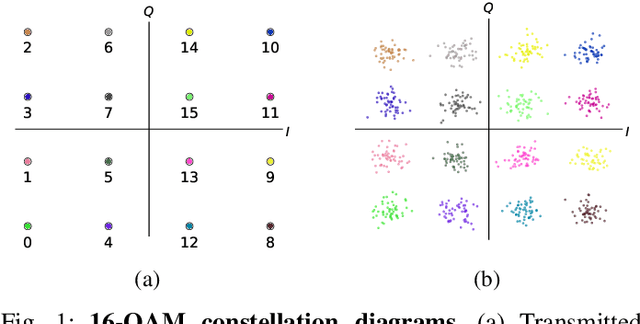

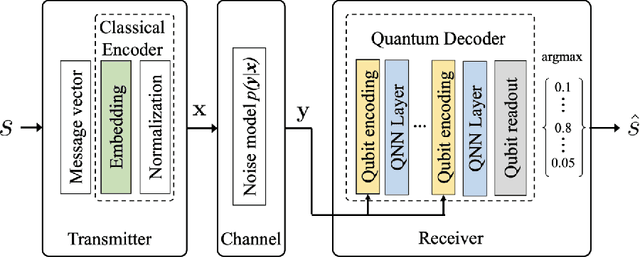
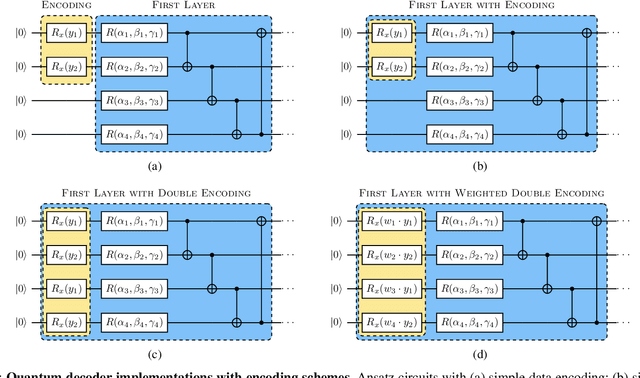
Abstract:Quantum neural networks are emerging as potential candidates to leverage noisy quantum processing units for applications. Here we introduce hybrid quantum-classical autoencoders for end-to-end radio communication. In the physical layer of classical wireless systems, we study the performance of simulated architectures for standard encoded radio signals over a noisy channel. We implement a hybrid model, where a quantum decoder in the receiver works with a classical encoder in the transmitter part. Besides learning a latent space representation of the input symbols with good robustness against signal degradation, a generalized data re-uploading scheme for the qubit-based circuits allows to meet inference-time constraints of the application.
* 6 pages, 8 figures
Photonic Quantum Policy Learning in OpenAI Gym
Aug 29, 2021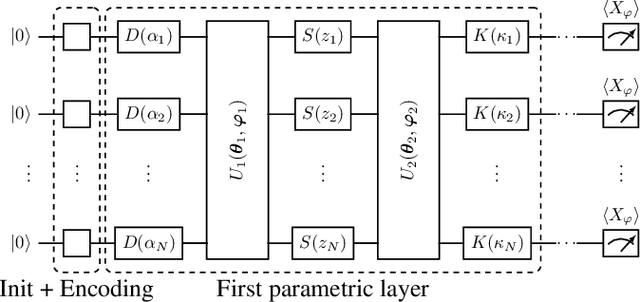
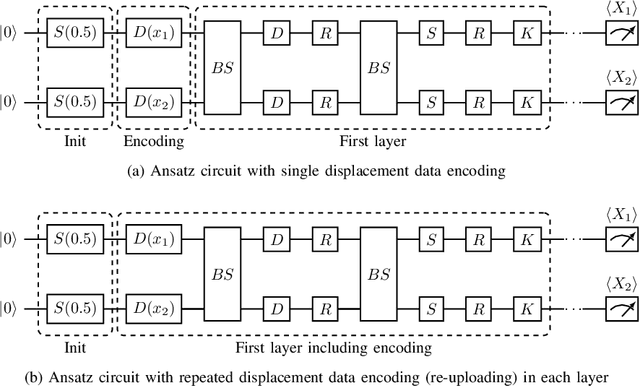
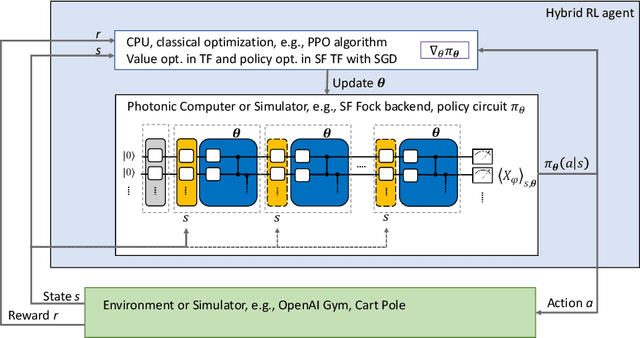
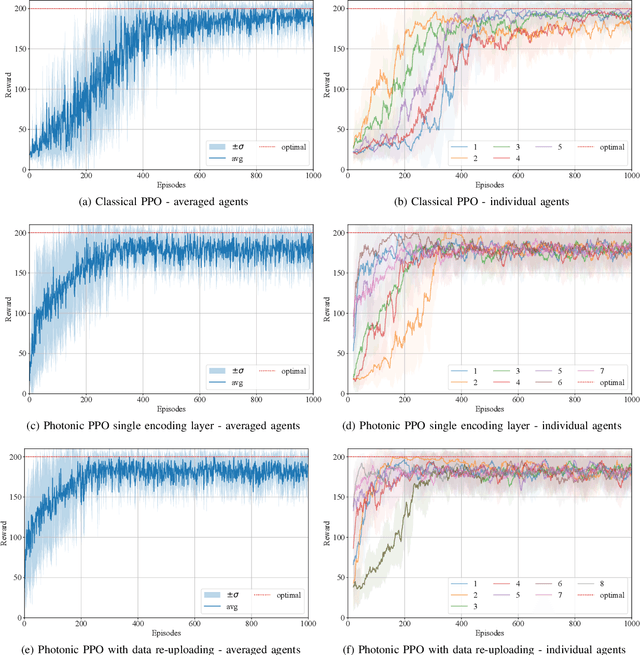
Abstract:In recent years, near-term noisy intermediate scale quantum (NISQ) computing devices have become available. One of the most promising application areas to leverage such NISQ quantum computer prototypes is quantum machine learning. While quantum neural networks are widely studied for supervised learning, quantum reinforcement learning is still just an emerging field of this area. To solve a classical continuous control problem, we use a continuous-variable quantum machine learning approach. We introduce proximal policy optimization for photonic variational quantum agents and also study the effect of the data re-uploading. We present performance assessment via empirical study using Strawberry Fields, a photonic simulator Fock backend and a hybrid training framework connected to an OpenAI Gym environment and TensorFlow. For the restricted CartPole problem, the two variations of the photonic policy learning achieve comparable performance levels and a faster convergence than the baseline classical neural network of same number of trainable parameters.
 Add to Chrome
Add to Chrome Add to Firefox
Add to Firefox Add to Edge
Add to Edge